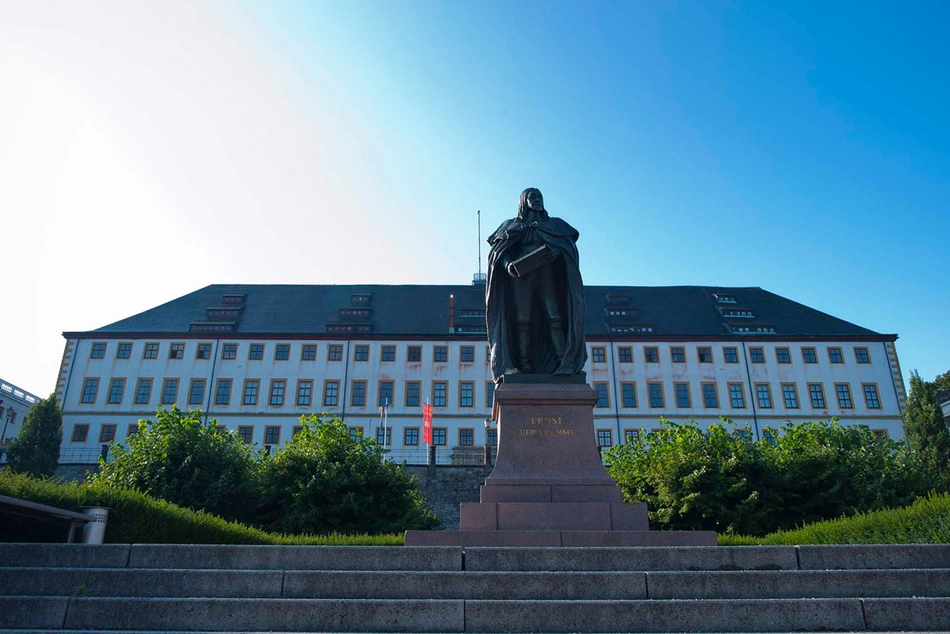In the exhibition, visitors get to know the city of Gotha: how it was and became what it is today; who shaped it and what makes it special. Instead of a chronological retelling of the 1250-year history, the focus is on thematic complexes in which the history is scrutinised under various aspects – from "Politics", "Education", "Economy and Crafts" to chapters such as "From all over the world to Gotha", "Associations and Commitment" and "Typical Gotha" or "Festivals and Celebrations".
The exhibition also incorporates the results of the co-operation project "Die kleine Freiheit: Fest, Fotografie, Oral History" between the Friedenstein Foundation Gotha and the University of Erfurt. Based on photographs from the Friedenstein Foundation's collections, students interviewed Gotha citizens and researched the freedoms that festivals bring with them. Their memories, their views on what freedom means and how they experienced the various political systems can be heard in the exhibition. In a seminar entitled “Die kleine Freiheit: Fest, Fotografie, Erinnerungskultur” (The Little Freedom: Celebration, Photography, Culture of Remembrance), the students previously scrutinised a photo collection of the Friedenstein Foundation Gotha, which has hardly been tapped into to date and contains a large number of photographs of various celebrations from around 120 years of the city's history. They then analysed these photographs in oral history interviews with the citizens: How were these festivals experienced? Were they moments of freedom, of overcoming routines and social constraints? Or were they perceived as a representation of power and control, especially during the SED dictatorship? How was it possible to celebrate between a social occasion and state control? The results are now being presented in the Ducal Museum.
Around 180 exhibits can be seen in the special exhibition. Most of the objects come from the collections of the Friedenstein Foundation Gotha, supplemented by donations, loans and digital copies from other institutions such as the Gotha Research Library of the University of Erfurt. Original contemporary documents such as speeches and audio recordings of the Gotha dialect or a narrative level, which categorises the topics in an emotional and engaging way and establishes historical references, make "GOTHA GENIAL?!" audible. A children's level and other sound and video stations complete the exhibition. An audio guide is available in German and English. The guide is designed as a discovery tour for children. A catalogue will also be published to accompany the exhibition.
"GOTHA GENIAL?!" runs until 26 October 2025, admission costs 8 euros (reduced 4 euros). Children and young people up to the age of 12 are admitted free of charge. Further information on the exhibition can be found at www.gotha-genial.de.

